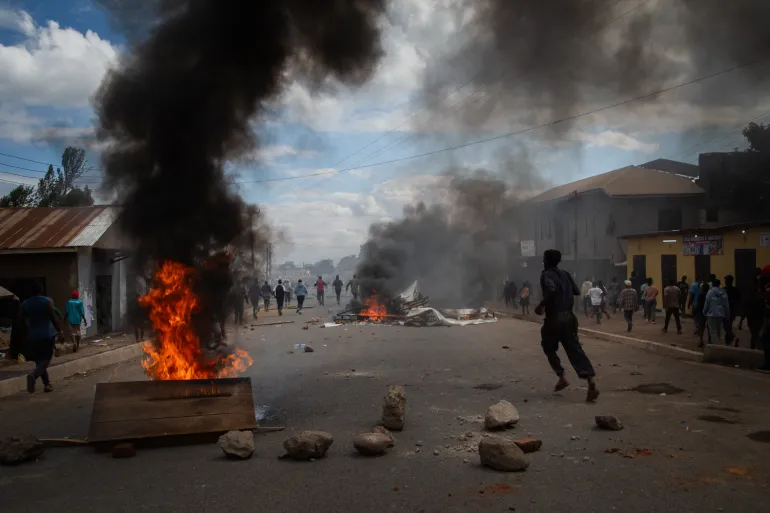Thousands of demonstrators have squared off with police in several parts of Tanzania for a third day of protests, following a disputed and chaotic election, to demand the national electoral body stop announcing electoral results.

The latest developments on Friday came as the government has deployed the military onto the streets and enforced an internet shutdown. On Thursday, in Dar-es-Salaam, a city of more than seven million people, protesters who defied a curfew in the Mbagala, Gongo la Mboto and Kiluvya neighbourhoods were met with tear gas and the sounds of gunfire.
Chaos erupted on Wednesday afternoon as young people took to the streets to protest the restricted election choices and harassment of opposition leaders. Several vehicles, a petrol station, and police stations were set ablaze by protesters.
Amnesty International has reported the deaths of at least two people this week.
State television was broadcasting the mainland results of Wednesday’s vote in which the Chama Cha Mapinduzi (CCM) party, which has governed Tanzania since independence in 1961, was seeking to extend its time in power.
Wednesday’s election saw President Samia Suluhu Hassan’s two biggest challengers excluded from the race, infuriating citizens and rights groups that have also decried an intensifying crackdown against opposition members, activists and journalists.
It’s the latest election this month in Africa to stir deep-seated anger among citizens after longtime leaders in the Ivory Coast and Cameroon also sought to cling on to power.
Only minor opposition figures were eligible to compete against Hassan in the election after the Independent National Electoral Commission disqualified Tanzania’s main opposition party, Chadema, in April for refusing to sign an electoral code of conduct.
The move came days after party leader Tundu Lissu was arrested at a rally where he called for electoral reforms and was charged with treason.
The commission also barred Luhaga Mpina, the candidate for the second largest opposition party, ACT-Wazalendo, after an objection from the attorney general.
Local and international watchdogs have sounded alarms over election-related violence and repression for months.






